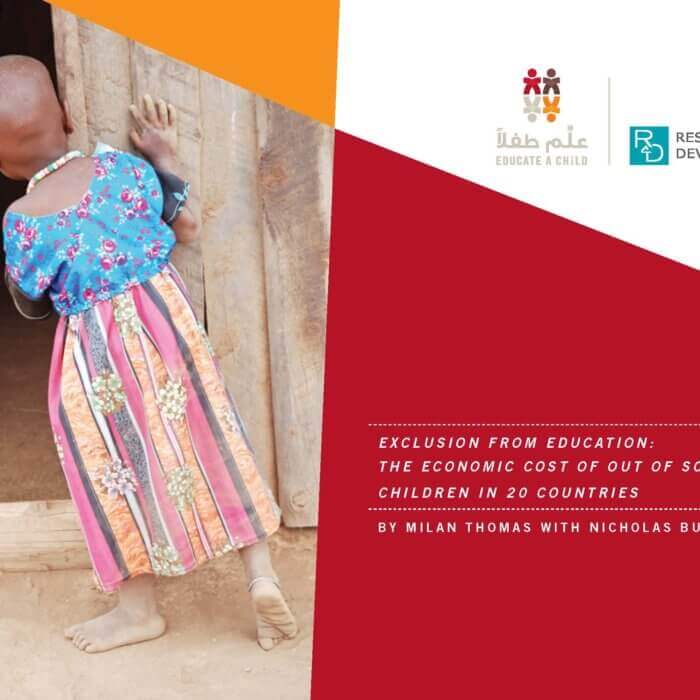In April 2013, Results for Development (R4D) reviewed the benefits of primary education and estimated the economic cost associated with large populations of out-of-school children in a background study for Educate A Child’s (EAC) High Level Strategic Meeting to Accelerate Efforts to Reach Out-of-School Children (Burnett, Guison-Dowdy and Thomas 2013). This report is an extension of that study. It updates economic cost estimates to reflect the latest data from the UNESCO Institute for Statistics (UIS), further develops the estimation methodology, and expands the estimation exercise to a set of 20 low- and middle-income countries.
EAC’s mission to support the Education for All initiative and Millennium Development Goals for education is more pressing and relevant than ever. Although significant progress toward achieving universal primary education has been made over the past decade, out-of-school children (OOSC) remain a pervasive global problem. According to UNESCO estimates, there are at least 57 million OOSC of primary-school age in the world (UIS 2013).
The estimated economic costs of OOSC vary substantially with OOSC prevalence rates across the sample, from 1 percent of GDP in Thailand to 10 percent of GDP in Gambia. Because these estimates do not account for the non-income benefits of primary education (such as improved health and citizenship), they are likely lower bounds for the total cost of OOSC in each country. This report reveals that the economic benefit associated with achieving universal primary education exceeds one year of average economic growth for nine countries with high OOSC prevalence. For Cote d’Ivoire, Gambia, Senegal, and Yemen, for example, the projected cost of OOSC is worth over two years of average GDP growth according to the first estimation approach.
In fact, the economic cost of OOSC tends to be highest in countries that are the least economically developed, suggesting that enrolling out-of-school children and providing them with quality education could contribute to global economic convergence, reducing economic inequality between and within countries.
Furthermore, for all countries in the sample (even those with low OOSC prevalence, like Brazil and Indonesia), the estimated economic gain from achieving universal primary education exceeds the estimated increase in public spending required to enroll those OOSC in primary school. Thus there are strong equity and efficiency arguments in favor of endowing OOSC with quality primary education.
Taken together, the findings of this report should provide impetus for efforts to reach out-of-school children and ensure that all citizens have access to primary education and the opportunity to achieve their full economic and social potential.














